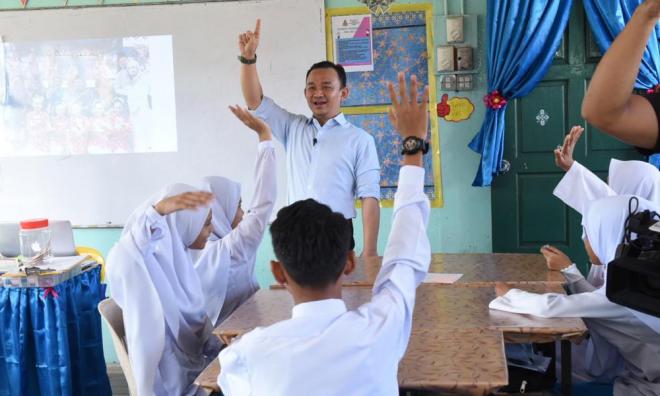
Civics education, which has been reintroduced in all schools nationwide since June, has become the talk of the town, in terms of its effectiveness and implementation.
In August, Prime Minister Mahathir Mohamad launched the national-level Civics Education 2019 initiative, aimed at creating a society and individuals who are responsible, caring and considerate of others.
Education Minister Maszlee Malik (photo), in turn, has explained that civics education in school is aimed at teaching children to know their rights, responsibilities and moral values so that as citizens, they can contribute to the well-being of society, the nation and the world.
Education Ministry's principal assistant director (co-curricular and arts division), Mohd Rashid Mean said the application of civics values is not limited to the classroom.
He said it also covers practices at home and other places, which is why the imparting of such values is not the responsibility of one institution alone, but also the responsibility of all parties involved.
In line with this, parents and communities play an important role in ensuring children embrace those values at school - guidance from parents and communities also serve to assist teachers when they impart civics education to students, he said.
“For instance, when we drive and encounter other motorists driving recklessly, look at the words we utter.
“We are watched by our children, and they will follow suit. That's why parents need to be good examples to their children,” he said in an interview with Bernama Radio recently.
Mohd Rashid said civics education in schools mainly focuses on current issues such as road safety, saying no to corruption, the dangers of bullying and environmental pollution, adding that these topics will be updated every year based on current needs.
Civics is taught for one hour on every fourth week of the month in schools, during the Bahasa Malaysia, English, Islamic Studies, Moral and History periods, while children in preschools are taught for 30 minutes.
In addition, nationhood and social-emotional aspects of citizenship and actions are embedded into school assemblies, co-curricular activities and other school programmes.
Noriah Harun, deputy director of Islamic education at the ministry, who was also interviewed by Bernama Radio, believes that a multiracial school needs to have one central point of unity which can bring students closer together, and this can be found in civics education.
"Communities should play an important role in imparting good values to children through civic practices as not all children come from strong family institutions," she said.- Bernama



No comments:
Post a Comment
Note: Only a member of this blog may post a comment.